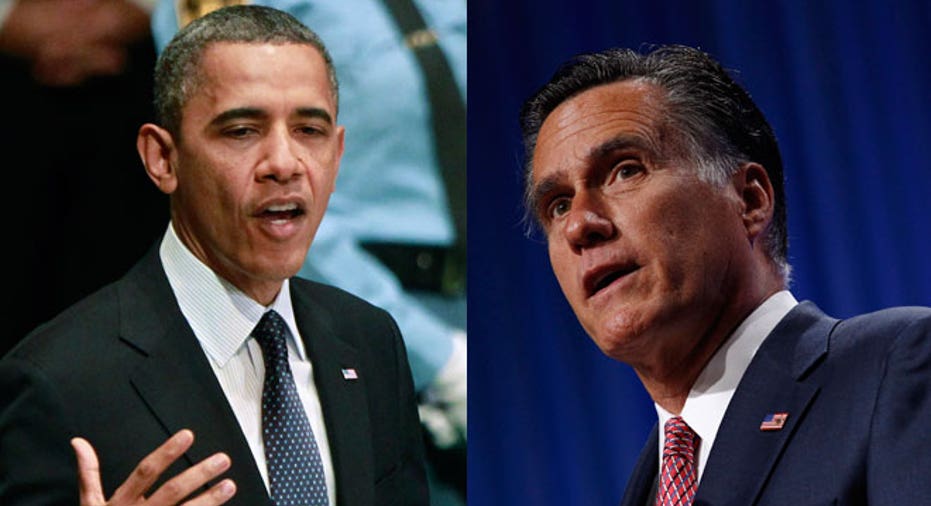Obama, Romney and the $250,000 Question

Within the first 20 minutes of Wednesday’s presidential debate, President Obama and Governor Romney spoke of their differing plans for job creation and tax policy, and the conversation ultimately hinged on small business.
Romney pointed to the president’s plan to let the Bush-era tax rates for households making $250,000 and up expire at the end of the year, and said if dropped it’s not just the rich who will get hit with the higher tax bill, but also many of the country’s small businesses that file at the individual rate.
“Those businesses that are in the last 3% of businesses employ half, half, of all the people who work in small business. Those are the businesses that employ one-quarter of all the workers in America,” Romney said during the televised debate.
Obama fired back that under Romney’s plan “a bunch of millionaires and billionaires who are small businesses. Donald Trump is a small business … that kind of approach I believe will not grow our economy.”
Ray Keating, chief economist for the Small Business & Entrepreneurship Council, said that while the organization typically goes by the Small Business Administration’s definition of a small business—those with 500 employees or less—he personally considers small businesses to have fewer than 100 employees.
“In terms of getting into other factors like how much they make, and so on, you can have a small business with one employee that makes a lot of money, or a small businesses with a lot of employees that isn’t successful,” Keating said.
Aside from the small businesses that would be hit under Obama’s tax proposal, Keating said it’s important to also consider the upper-income earners that would be potential investors.
“It's difficult to figure out why the president would talk about increasing taxes on any small business,” he said. “And, you can’t ignore the fact that small businesses need investors as well to grow.”
However, John Arensmeyer, president of the Small Business Majority, said Romney’s plan won't do much of anything for the small-business community.
“Reducing personal taxes on the top 3% of small business owners is not a useful way to help small businesses,” he said. “In fact, it pulls money out of the budget that can be used in much more targeted ways to directly help small businesses. If we want to help small businesses, we should make sure we have policies that are actually focused on them.”
President Obama has done so in his term, Arensmeyer argued.
“The 18 tax breaks Obama mentioned—let’s talk about policies like that, that are targeted to small businesses. Instead of policies of raising taxes on the upper two back brackets, that has very little to do with small business,” he said.
Despite the differing of opinions and agendas, Keating said he was pleased to see small business and entrepreneurship take such a leading role in the debate discussion overall.
“They both said nice things [about small business]” Keating said. “It was encouraging to see small business was such an important part of the debate.
FOXSmallBusinessCenter is all ears for the small business news being made on the 2012 campaign trail. Come here each Friday for a weekly recap of the Obama and Romney campaigns’ latest comments and projections regarding your livelihood and American Dream realities.



















